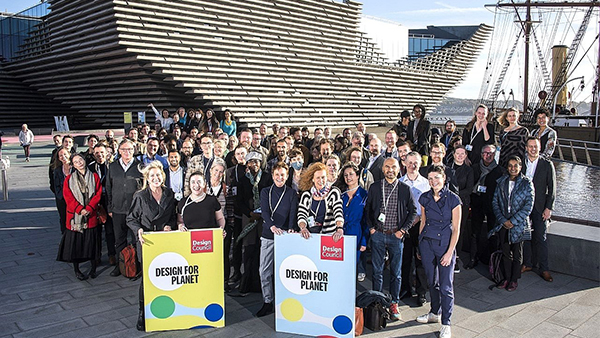In Rationality and Freedom, Amartya Sen points out the correlation between freedom and rational choice, and the complexity of the two. In Freakonomics, Levitt argues that conventional wisdom is often wrong. There is no question that Brexit is an act of Democratic freedom, and, to a certain extent, a consequence of irrational fears, some of which are based on conventional beliefs.
It is an aggregate of complex individual choices, with tangible consequences: the renouncement of the European Union and the rejection of the cosmopolitan in favour of the national. Finally, as perceived by some of my friends, Brexit is an act of abandonment in a time of crisis, when British presence is needed, valued, and – for many reasons – important to the remaining EU states.
A few months ago, I had a conversation with a friend, who considers himself a New Englander as well as an American. He was explaining that being united has always been one of the major American strengths. To me – a European and a Pole, who remembers the impact of the 1980s Solidarity movement well – such an observation is not particularly revealing. What puzzles me are the whys, the causes which led to the split. As history shows, seemingly unrelated occurrences can sometimes instigate a big change. This time, two major problems coalesced and – perhaps – acted as powerful triggers: the disturbing concerns regarding the influx of the EU migrants to the UK, and unsettling reports of the refugee crisis. I think that it is adjectives like 'disturbing' and 'unsettling' that reflect the moods which influenced perceptions, and which seem to partly explain the apparently rational choices or the conventional wisdom that brought about Brexit.
Choosing Brexit, to an extent, can be perceived as an act of selfishness, but also a manifestation of confusion, the emanation of all kinds of fears, an incarnation of uncertainty running through the veins of many contemporary societies.
The combination of several occurrences across the EU – Chancellor Merkel's controversial decisions regarding the Syrian refugees, reports of the unrests in refugee camps in Calais and the large migrations within the EU – didn’t go unnoticed in Britain. In the eyes of my Polish and European friends, Merkel's policy and the way the media reported the refugee crisis incited mistrust, rather than promoted solidarity with the victims. Some of my friends believe that Brexit supporters felt threatened by the influx of foreigners, afraid that some of the EU's decisions will put their country at risk, hence the withdrawal to the protectional mode of pro-nationalistic isolationism. A number of my Polish and UK-based friends also point out that, in their eyes, the UK's media failed to educate the public. It focused mostly on the overwhelmingly negative and often overlooked the many ways in which European immigrants contribute to the UK's economy.
The somehow sensational UKIP's chauvinistic propaganda, backed by other politicians across the political spectrum, also played a role, and worked as touchwood for the existing fire. Most of what we experience in societies is a process, an incremental accumulation of the impacts of various factors. In the light of this, some of the hyped-up EU immigration problems, together with other partisan reports, must have been insidiously at work prior to the referendum.
It is a fact that within the last two decades, Eastern Europeans have entered the UK on an unprecedented scale. True, but, according to Migration Watch UK: “most immigration is from non EU countries; these are countries from which immigration could be restricted if it were government policy to do so”. As further pointed out by the same source, “More British citizens leave the country than arrive. EU net migration is currently 184,000 compared to188,000 from outside the EU.” Contrary to some conventional wisdom, there still seems to be a high demand for workers on the British labour market. However, the recent influx of migrants can, for many reasons, be uncomfortable for certain groups within the UK. In the past, the UK's diversity was mostly aby-product of colonial exploitation, hence a widespread concession for diversity, but thatwas the diversity on an unequal basis, where immigrants were taken advantage of ratherthan included into society as equals. Some among the 52% of Brexit voters feel that being a part of the EU jeopardizes Britain's sovereignty, but arguably the union is actually an extension of rights, a supranational approach to citizenship, rather than a trojan horse or a pretext for the colonization of Britain.
What will come next is still a mystery, but we must trust that our further choices will lead to constructive changes for the better. Against all odds, we should act in the hope that we can build on the existing EU-UK cooperation, and hope that, even though separated, we can still – in many ways – work together.
Related articles
-
Open call: Creative collaboration and collective imagination research
Hannah Webster Ella Firebrace
Learn more about the UNBOXED: Collective Futures open call; inviting you to submit what you are doing to help shape better futures for people and planet.
-
UNBOXED: The importance of unlocking collective imagination
Joanna Choukeir
Find out about UNBOXED: Creativity in the UK, why its mission is so important, and what you can expect to see.
-
A design revolution for the climate emergency
Joanna Choukeir
Joanna Choukeir on Design for Planet, the global gathering of designers during COP26, and the changes design must make.




Be the first to write a comment
Comments
Please login to post a comment or reply
Don't have an account? Click here to register.